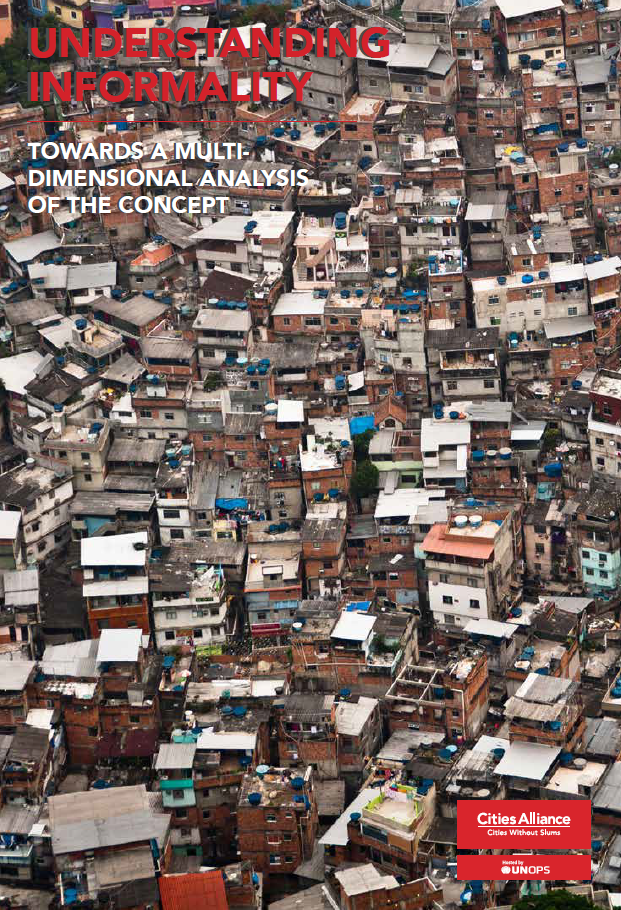Understanding Informality
Towards a Multi-dimensional Analysis of the Concept

Informality as a concept is a fundamental analytical lens to study living realities far beyond the spaces of slums. Coined five decades ago, the idea of informality has been used in different knowledge domains and discourses. Several have made important contributions to improving our understanding of the Global South’s urbanization processes: informal economy, informal housing, informal land markets, informal law, and informal institutions.
The informal economy is the oldest and best-studied dimension of informality. Economic informality generates new employment in the developing world, even if accompanied by high levels of underemployment, insecurity and low-income level. The informal sector accounts for up to 80 per cent of certain national economies in the developing world but even represents between 8 per cent and 10 per cent in Western Europe and the United States. The idea of informality has been used in other discourses, each providing unique insights on the topic.
This review paper is based on research findings of a former project and presents a theoretical framework to illustrate and compare different understandings of informality. In absence of precise definitions, key texts of different informality discourses have been analysed to establish a broad range of ideas associated with the concept of informality.
120 ideas were identified and grouped into a framework of seven dimensions. By analysing key texts of Cities Alliance and its members, it is possible to visualize differences and communalities of understandings. Such work is important as informality is differently used by various actors and the very way we understand informality ultimately shapes our interventions.
Main Messages
- This review is part of the Global Review Series on Informality, and it outlines a new approach to a more differentiated understanding of the concept of informality. Informality as a concept has been approached from different angles and been subject to different discourses, and each discourse has contributed particular ideas about the informal. In the absence of precise definitions, a decomposition approach is applied to identify and visualize similarities and differences in understanding informality.
- Specifically, this paper provides a short overview of the most influential discourses on informality in an (urban) development context informal economy, informal housing, informal land, and urban informality discourses to then present an analytical framework to capture these different views on the informal.
- Five practice documents of Cities Alliance and its members are analysed to highlight differences and similarities and suggest promising ways. Different discourses depict informality by referring to its economic, legal, technical, organizational, political, social, and cultural dimensions.
- The discussion of informality is very complex and multi-layered. A taxonomy is proposed on seven dimensions of the informal based on the grouping of 120 distinct ideas. A multi-dimensional understanding of informality unlocks comparison between discourses.
- The way we define informality shapes our actions. Definitions draw borders between what we consider and what we exclude in a specific context. A multi-dimensional understanding of informality unlocks comparison between discourses.
Abstract based direclty on source.


Comments